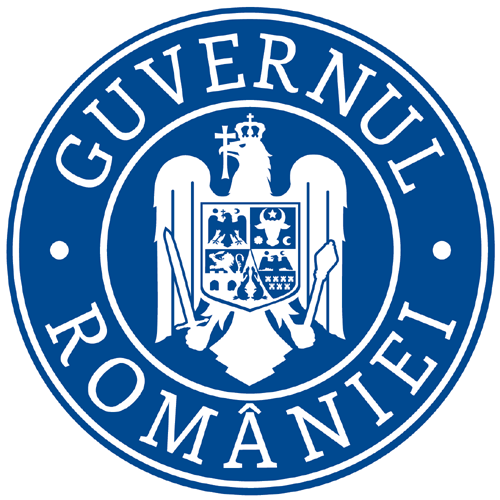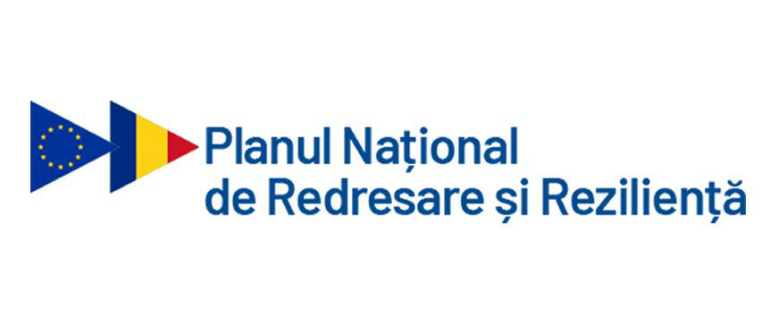Explore presentations delivered by CORECON members at the Conference.
Find the conference programme below:
Find the book of abstracts below:
Rationale
Often referred to as the “Second Cold War” or even the “Third World War,” the Russian-Ukrainian conflict is undoubtedly not only one of the major events of our time, but one that looks set to profoundly influence history for decades to come. Yet, the military and economic conflict is only the flip side of an ideological and informational conflict that has already polarized the entire planet. How to detect the truth beyond the propagandas and identify the rhetorical strategies by which the producers of various discourses try to manipulate others? In an era of “post-truth”, when AI tends to substitute or even create reality, such a question acquires a new relevance and high urgency that calls for interdisciplinary and collaborative research. However, in order to answer it, the most suitable investigation should start not from the belligerent camps (where propagandas reign), but from the analysis of the variety of mediated discourses promoted by third parties. Of course, “objectivity” in the traditional sense of the term is a mere illusion.
Questions
- How does the geopolitical position of a society or a state compare to the ways the Russian-Ukrainian war is reflected in the media?
- What are the dominant meanings and implicit ideologies in discourses about the war in various countries?
- How do mediated accounts of war become embedded in cultural narratives, historical memory and social processes?
- What is the role of media technologies in shaping the imaginaries of war and conflict?
- How can critical media research on war discourse translate into journalistic practices of war coverage?
And offer a methodological reflection on:
- What are the most useful tools of linguistic analysis to understand the complexity of the mediations of Russian-Ukrainian war?
- What can quantitative and/or computational investigations tell us about Russian-Ukrainian war discourses?
- How can the critical and interdisciplinary approaches be synergized to explore various representations of war?
- How to ensure the ethics and integrity of researching war and conflicts?
Fields of study
- Linguistics;
- Media/journalism studies;
- War studies;
- History;
- Sociology;
- Psychology;
- Literary and cultural studies;
- Postcommunist studies;
- Area studies;
- Interdisciplinary approaches.
Abstract sumbission
Please submit an abstract (200-300 words) along with a brief bio (100 words) to grant.corecon@ulbsibiu.ro. Proposals should include the title of the paper, the main arguments, alongside the methodologies employed.
Keynote speakers
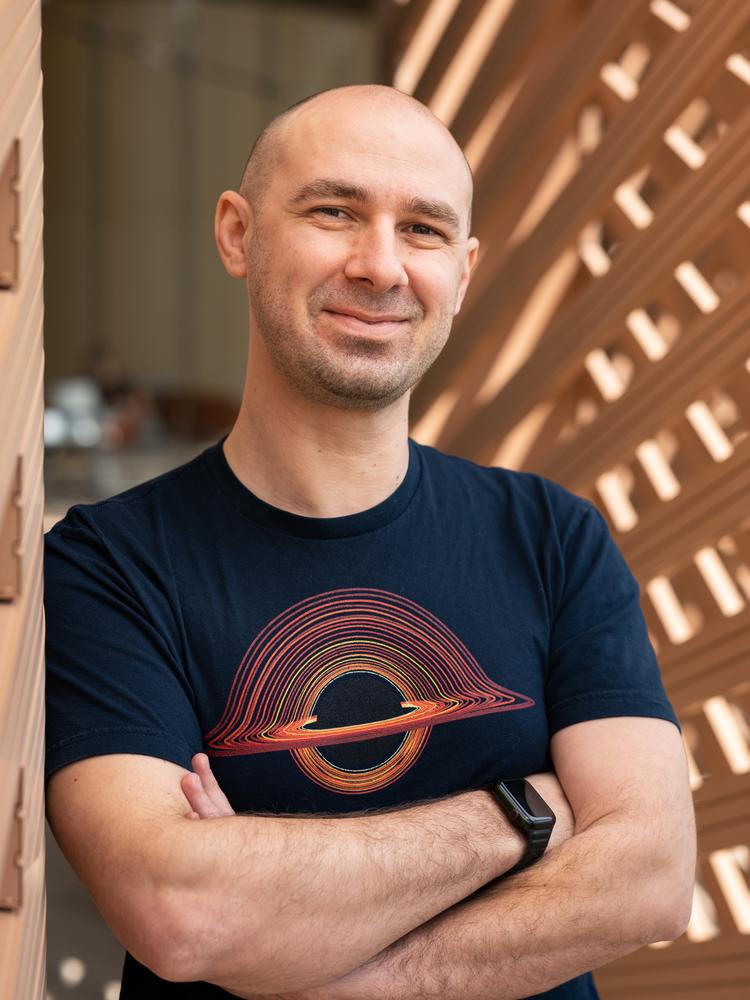
Alin Coman, Ph.D., – Professor of Psychology and Public Affairs, Princeton University
NARRATIVES THAT SHAPE WORLDS: FOR BETTER AND FOR WORSE
People attempt to make sense of the ambiguity and uncertainty of the world around them by imposing meaning. It is a universal feature of the human mind. One way for a person to create meaning is by telling stories that attempt to make sense of their past, present, and future in coherent ways. Nations do the same. They “tell” stories that attempt to make sense of a shared collective past and, potentially, indicate a trajectory for the future. These stories serve adaptive purposes, helping members of large communities to coordinate and cooperate. Americans tell stories about the “shining city on a hill,” Russians about their “triumph over alien forces,” and Romanians about their historical importance as a “gate to Christianity.” In this talk, I will argue that the human mind’s capacity to search for meaning, paired with the ability to synchronize these cognitive products (i.e., meanings) across large groups of individuals, makes human communities particularly susceptible to political entrepreneurs. These entrepreneurs build on these narrative templates to both provide meaning and synchronize their supporters’ mental representations. To anchor this argument, I will present empirical studies that explore the interaction among cognitive, social, and ecological factors involved in the formation, maintenance, and activation of narratives across human groups, with implications for contemporary conflicts.
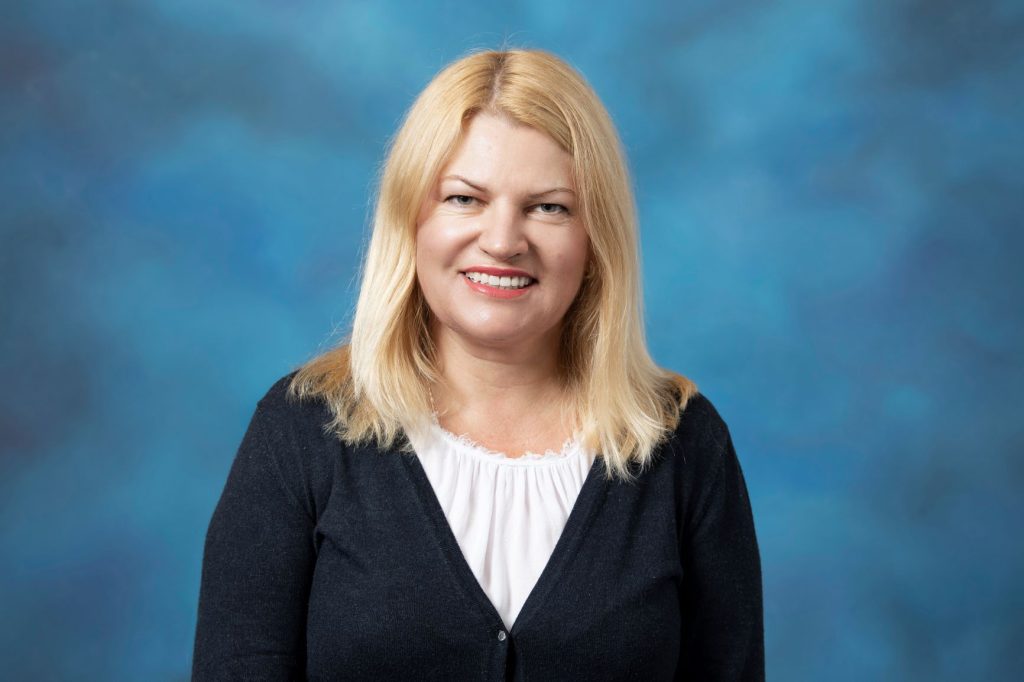
Valentyna Ushchyna – Professor of the English Philology at Lesya Ukrainka Volyn National University of Lutsk
FROM CONFLICT OF DISCOURSE TO MILITARY CONFLICT: MEDIA CONSTRUCTION OF WORLDVIEW NARRATIVES
This talk will attempt to grasp the discursive nature of Russo-Ukrainian war. The critical discourse analysis of the conflictual ways of the Russian and Ukrainian identities construction in discourse and by discourse can shed light onto the covert reasons of the unprovoked military aggression Russia has been executing against Ukraine. The argument is based on the idea that identity is a manifold composite of stances taken by individual as well as collective speakers in various situations of communication. Having an epistemic and affective dimension, stances are inherently interactive, and, thus, have collective or social nature. Generally speaking, conflictual stances, built in war discourse, express national, political, or sociological worldviews of the stance-takers, reflecting their ideologies, values, and beliefs. The way people see the conflict and thus construct their corresponding stances, differs according to what “frames” they choose to see it through. The frames circumscribing Ukrainian and Russian conflictual identities, as they are built in Ukrainian and Russian media discourse, can be grasped through language used to represent the conflict. As there are diverse semiotic systems to create, transmit and understand meanings (e.g., verbal and non-verbal, written and oral, visual and audial), various modalities employed in the process of discursive construction of these identities should be taken into consideration.
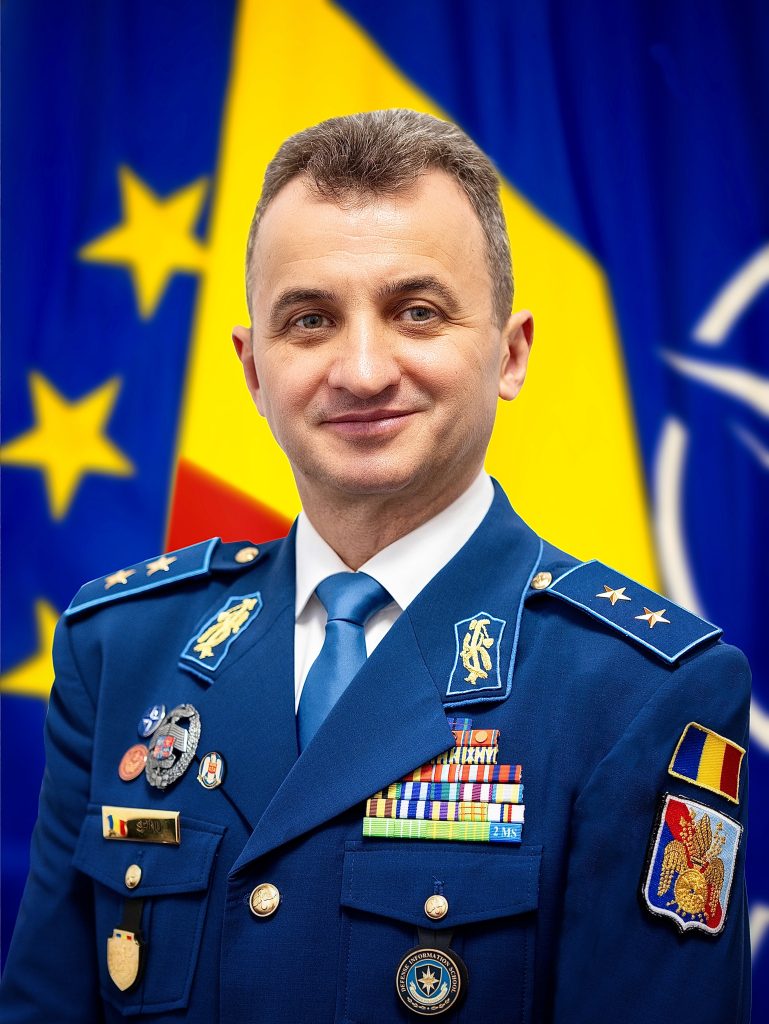
Major-general Constantin Spînu, PhD., -A military advisor for the Minister of National Defense and Director for Romanian MoD Strategic Communications.
HOSTILE COMMUNICATION ACTIONS CARRIED OUT BY THE RUSSIAN FEDERATION IN THE PUBLIC SPACE OF ROMANIA. OPTIONS OF COUNTERACTION.
The presentation covers the topic of disinformation, a phenomenon that affects today’s society. By reviving the existential clash with the evil, decadent and decaying West, Russia has resumed the old Soviet style active measures, with well-funded influence campaigns, using the new instruments offered by the internet-based technology. The disinformation operations currently employed by the Russian active measure opparatus are eroding the very foundation of the open societies of the Euro-Atlantic space. The findings that will be presented demonstrate that , even though based on previous historical experiences, the Romanian society regards itself as anti-Russian, the Kremlin’s concocted strategic divisive narratives have penetrated large segments from the targeted public opinion. In addition to highlighting the key indicators that measure the positioning of public opinion towards Romania’s support to Ukraine in defending against Russian invasion through various measures in the 2022-2024 period, this lecture provides new data, extracted from a public opinion poll, administered by the operators of a professional sociological research institution – the Romanian Institute for Evaluation and Strategy (IRES). The survey demonstrates which specific segments of the Romanian public are vulnerable to disinformation, and which topics are of great interest for the public debate, related to the war of aggression in Ukraine and its consequences for the Western space in general and Romania in particular. The topics that tend to polarize the society can exacerbate the fears, frustrations and anxieties associated with the danger and uncertainty generated by the military conflict taking place across the border. This situation has consequences in the economic domain (with fears of a fall in living standards in the future as a consequence of the deterioration of the economic environment as a result of the war), social domain (pressure exerted by the reception of Ukrainian refugees), and also the security and defense, where fears are being cultivated about Romania’s possible involvement in the war on the Ukrainian side or the fear of possible direct Russian attacks on Romanian territory in response to the position adopted in favor of Ukraine.
Important information
Fees: There is no conference fee and meals are provided onsite. Participants are obliged to arrange their own accommodation and travel.
Form of participation: Participants are welcome to join the conference either onsite or online. Detailed instructions on how to join the online sessions will be provided closer to the event date.
Post-conference publishing opportunities: Selected conference papers will be offered a publication option in a dedicated volume within Springer’s “The Language of Politics” book series, following review.


